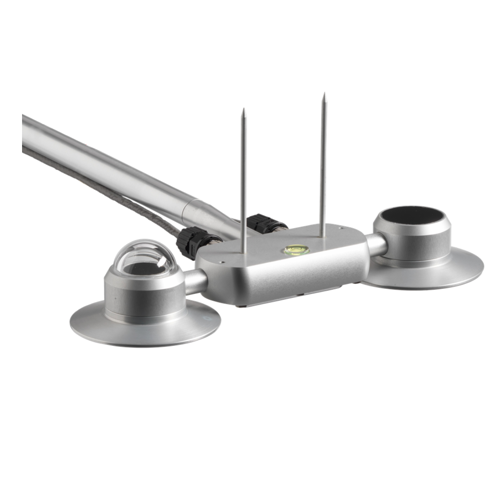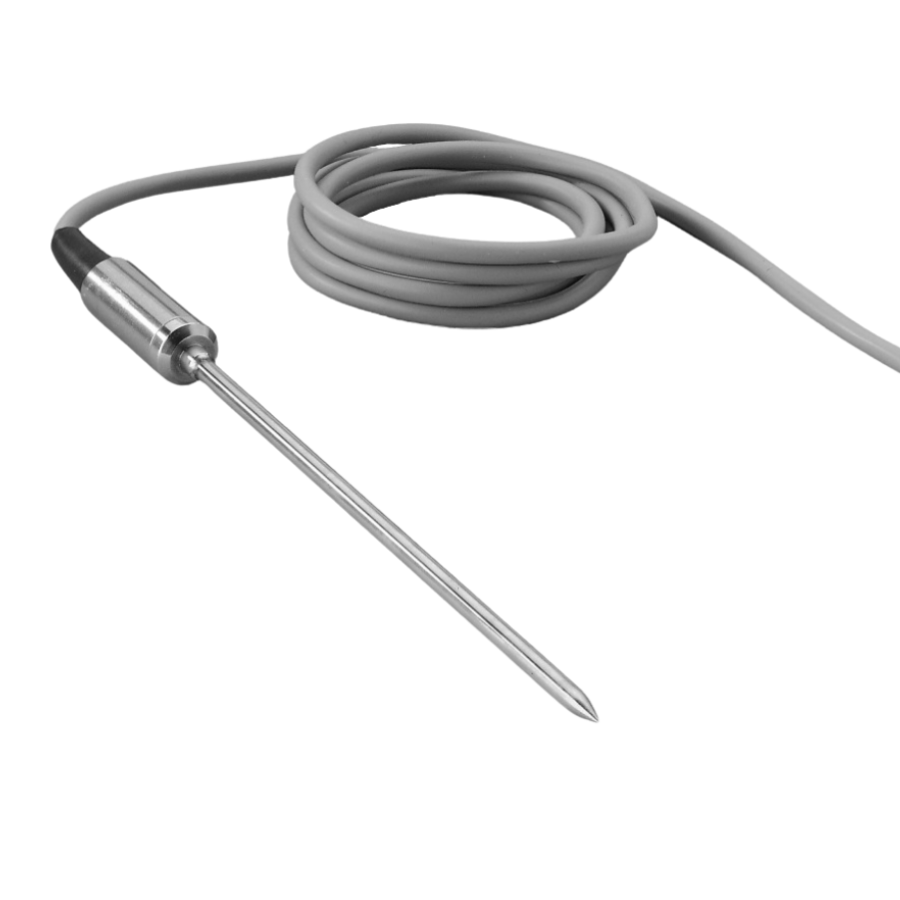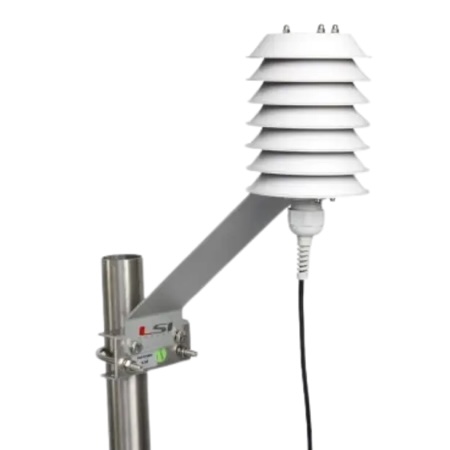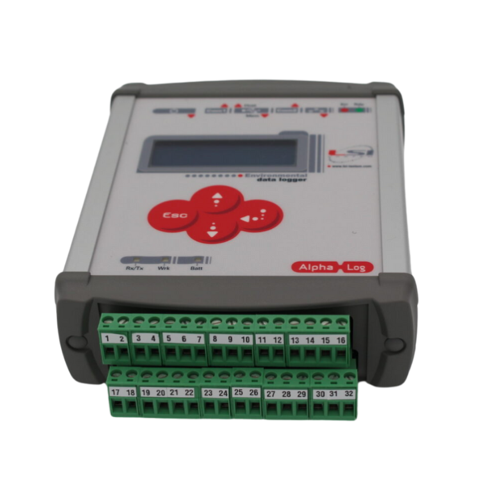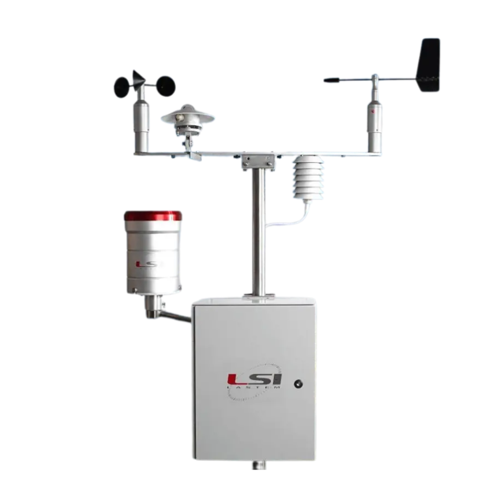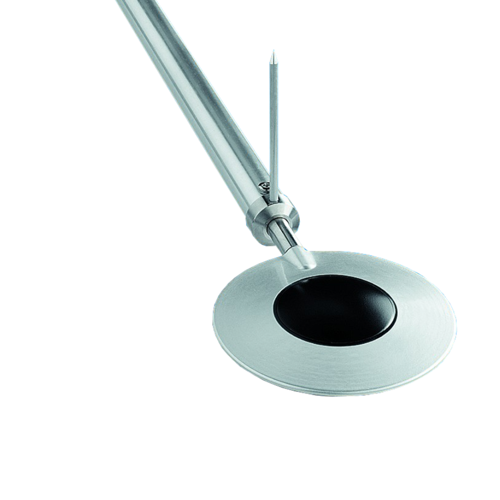The LPNET14 is a sophisticated 4-component net radiometer designed for the most detailed analysis of the Earth's radiation budget. It integrates two ISO 9060:2018 Class C pyranometers and two precision pyrgeometers to independently measure all four radiation fluxes: incoming/outgoing shortwave (solar) and longwave (infrared) radiation. With a built-in NTC temperature sensor for accurate IR data correction, scratch-resistant coatings, and a robust IP65 housing, it delivers unparalleled, research-grade data for advanced meteorological, climatological, and environmental energy balance studies.
The Definitive Instrument for Complete Surface Radiation Analysis
The LPNET14 elevates radiation measurement by deconstructing the net radiation into its four fundamental components. Unlike a standard net radiometer that provides a single net value, the LPNET14 separately measures Shortwave Incoming (Global Solar Radiation), Shortwave Outgoing (Reflected Solar Radiation), Longwave Incoming (Atmospheric Infrared Radiation), and Longwave Outgoing (Terrestrial Infrared Radiation). This granular data is critical for developing and validating complex climate models, studying urban heat islands, precise evapotranspiration calculations, and understanding the radiative forcing effects of different surface types.
Engineered for Uncompromising Accuracy in Every Component
Precision is built into every aspect of the LPNET14. The pyranometers feature a matt black thermopile sensor and optical glass domes for accurate solar measurement across a broad spectrum (300-2800 nm). The pyrgeometers are equipped with silicon windows protected by a diamond-like carbon (DLC) anti-scratch coating and are critically dependent on the integrated NTC sensor. This sensor precisely measures the body temperature of the pyrgeometer, which is essential for converting the thermopile's raw signal into accurate infrared flux data (W/m²), ensuring reliability even in rapidly changing environmental conditions.
Key Advantages & Features
- Four Independent Sensors: Two pyranometers (Class C) and two pyrgeometers provide separate measurements of all shortwave and longwave radiation fluxes for ultimate data clarity.
- Integrated Temperature Compensation: A built-in NTC sensor ensures highly accurate pyrgeometer readings by directly correlating the thermopile output with the instrument's body temperature.
- All-Weather Durability: Features scratch-resistant silicon windows (pyrgeometers), optical glass domes (pyranometers), and an IP65-rated anodized aluminum housing for long-term deployment in harsh conditions.
- Wide Spectral Coverage: Measures the complete relevant spectrum from 0.3 μm (UV) to 45 μm (Far-IR), capturing all significant solar and terrestrial radiation.
- Research-Grade Precision: Designed and built to meet the demanding requirements of scientific research, providing data reliable enough for publication and model validation.
Measures & How to Use
- Primary Application: Essential for advanced climate research, baseline surface radiation networks (BSRN), energy balance studies in agriculture, and urban climate monitoring.
- Install the instrument on a mast in a completely open area, ensuring it is easily accessible for cleaning the sensitive optical surfaces (silicon windows and glass domes).
- Follow WMO/ISO guidelines: in the Northern Hemisphere, install the radiometer south of the mast to avoid shading; ensure the horizon is unobstructed below 10°.
- Use the provided shaft for precise horizontal alignment, which is critical for accurate pyranometer cosine response and pyrgeometer readings.
- Connect the four individual sensor outputs to a high-precision data logger. Calculate Net Radiation as: (Shortwave In - Shortwave Out) + (Longwave In - Longwave Out).
| Parameter | Specification |
|---|---|
| Pyranometer (x2) - ISO 9060:2018 Class C | |
| Typical Sensitivity | 5...15 µV/(W/m²) |
| Impedance | 33...45 Ω |
| Measuring Range | 0...2000 W/m² |
| Spectral Range (50%) | 300 nm...2800 nm |
| Viewing Angle | 2π sr (180°) |
| Pyrgeometer (x2) | |
| Typical Sensitivity | 5...10 µV/(W/m²) |
| Impedance | 33...45 Ω |
| Measuring Range | -300...+300 W/m² |
| Viewing Angle | 160° |
| Spectral Range (50%) | 5.5...45 µm |
| General Specifications | |
| Output | 4x passive analog signals (mV) |
| Additional Sensor | Integrated NTC for pyrgeometer temperature compensation |
| Operating Temperature | -40 to +80 °C |
| Protection Degree | IP65 |
| Housing Material | Anodized Aluminum |
| Pyranometer Dome | Optical Glass |
| Pyrgeometer Window | Silicon with anti-scratch DLC coating |
| Dimensions | 160 mm (length), 74 mm (height) |
| Brand | Senseca |
